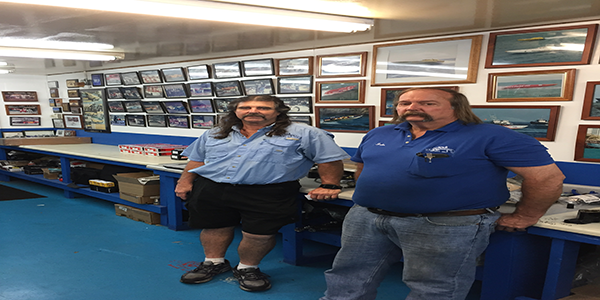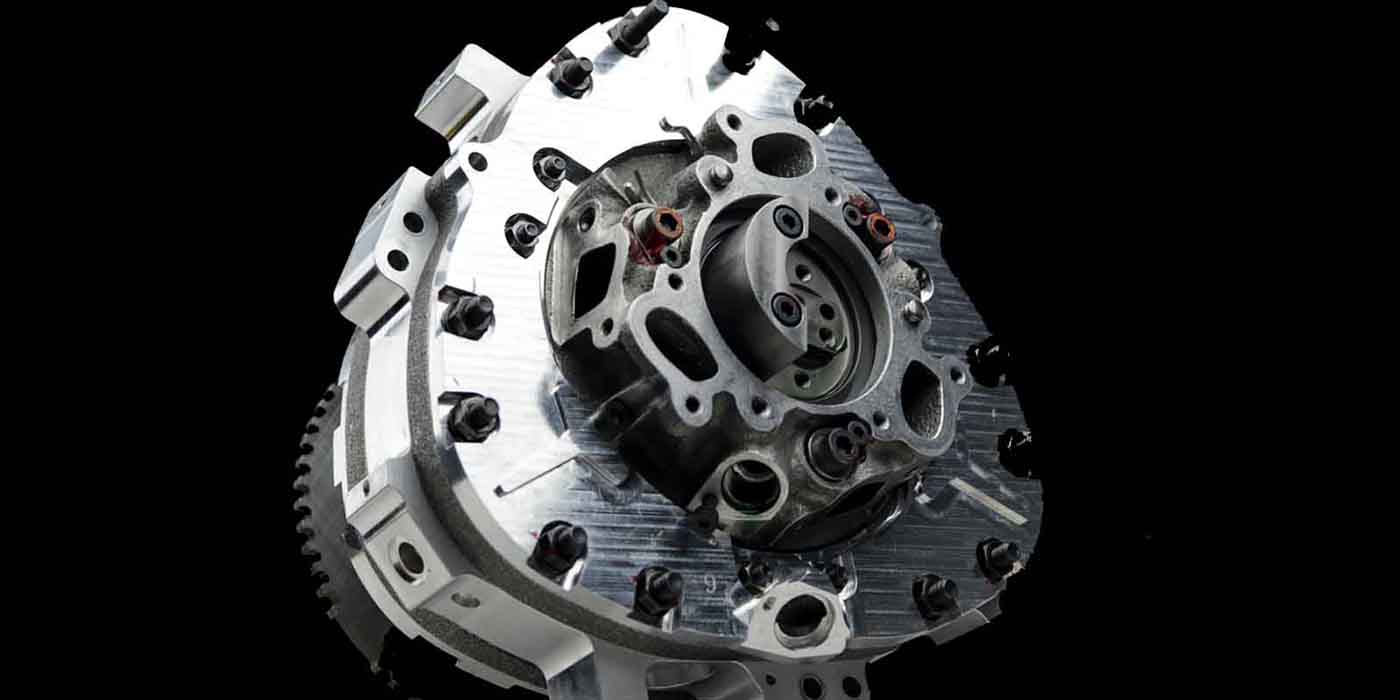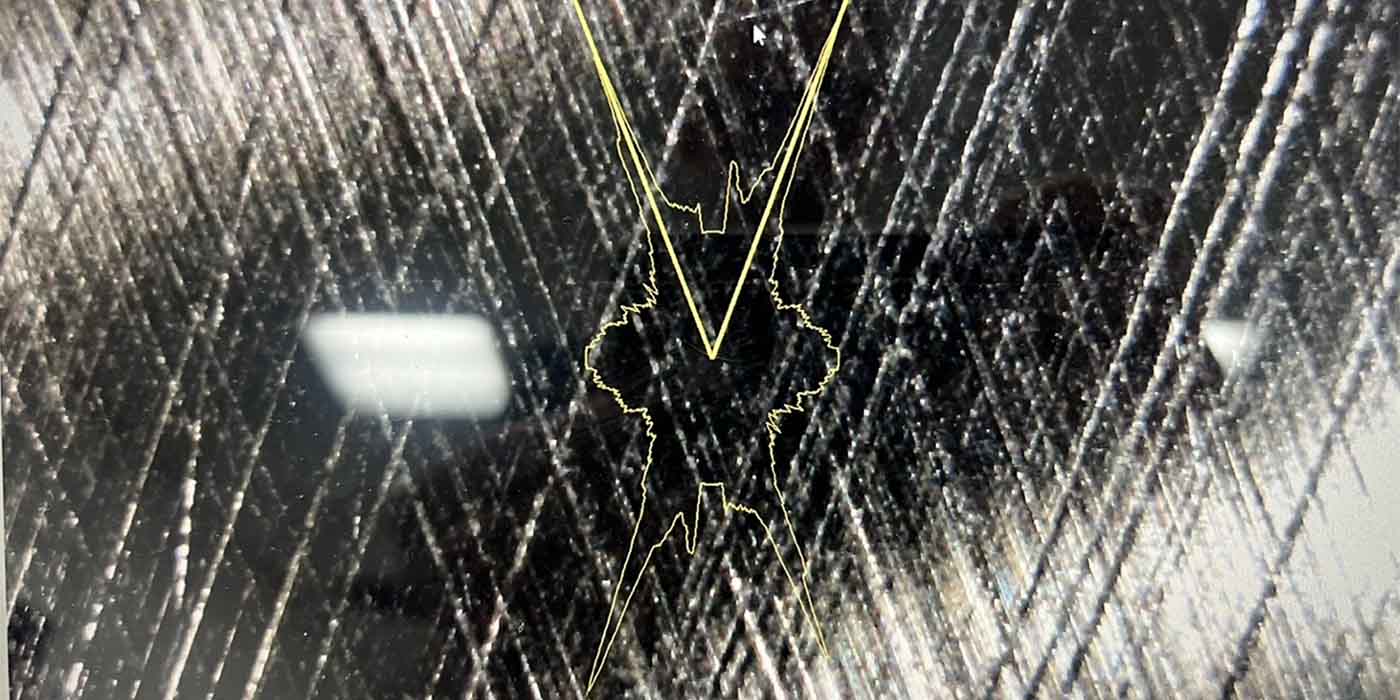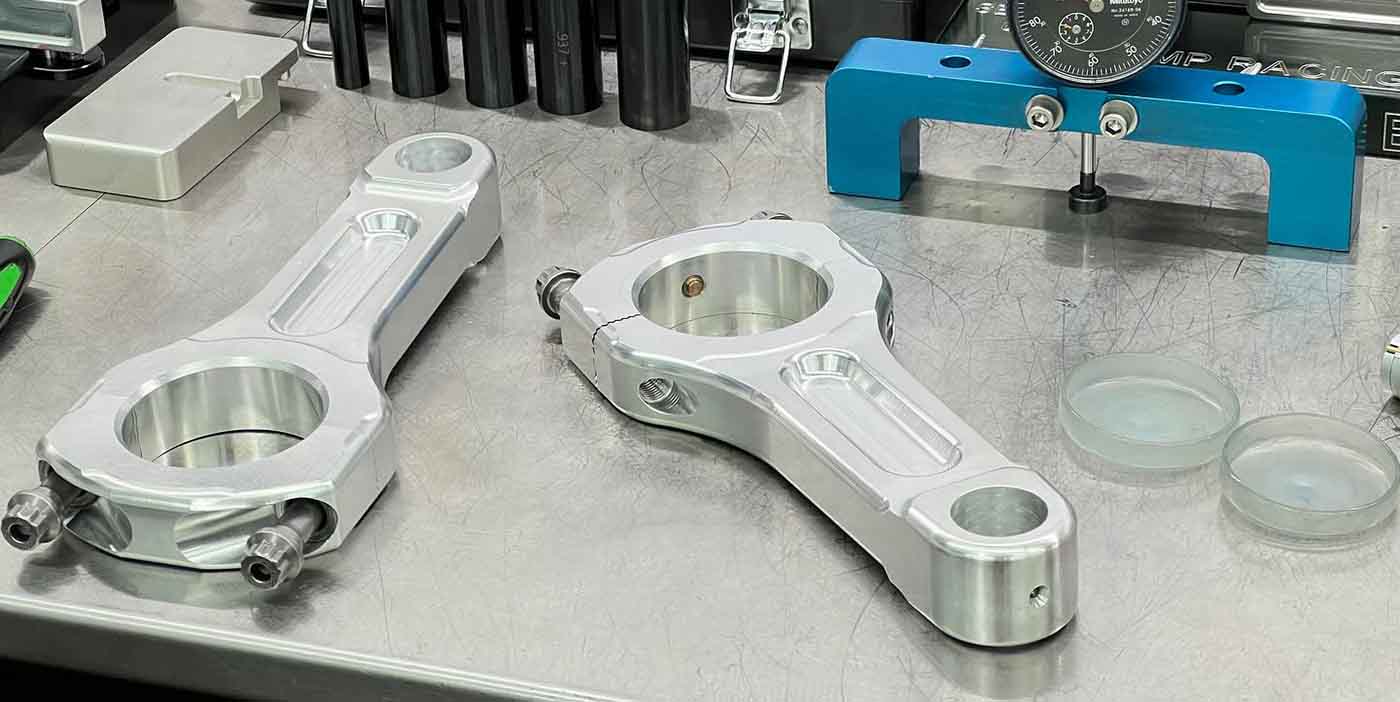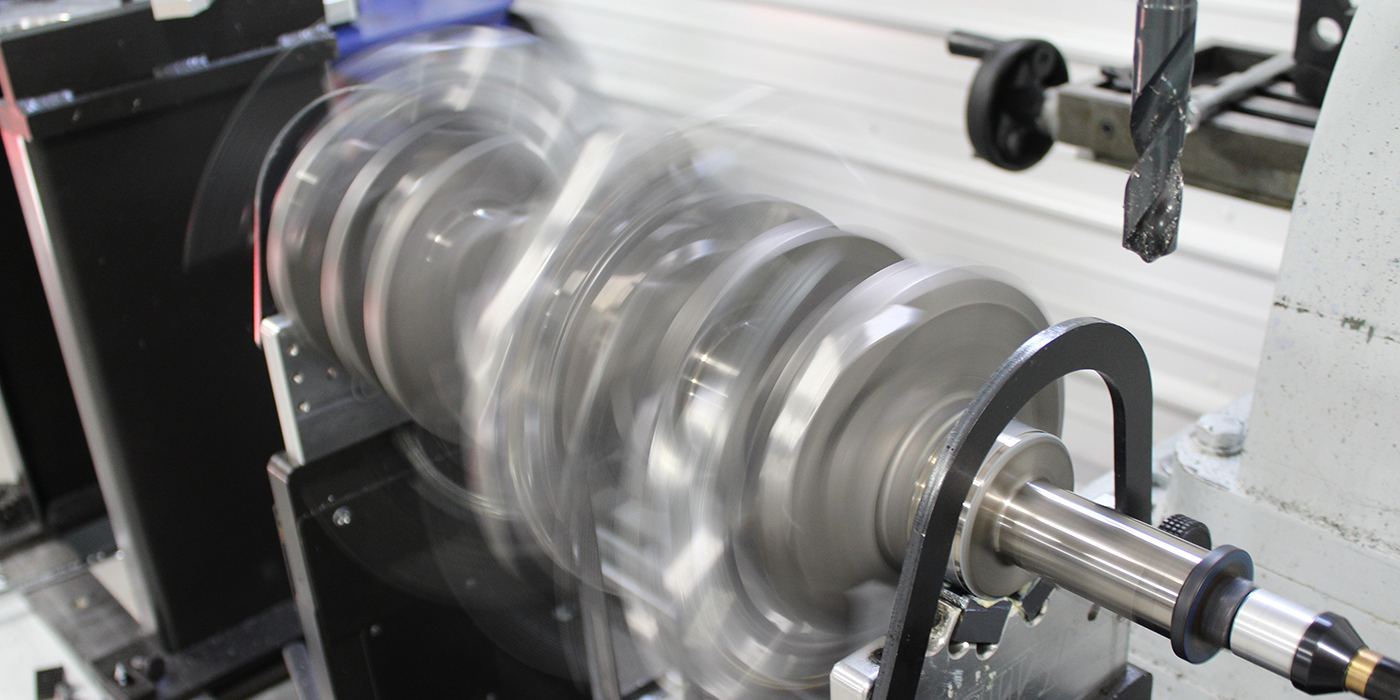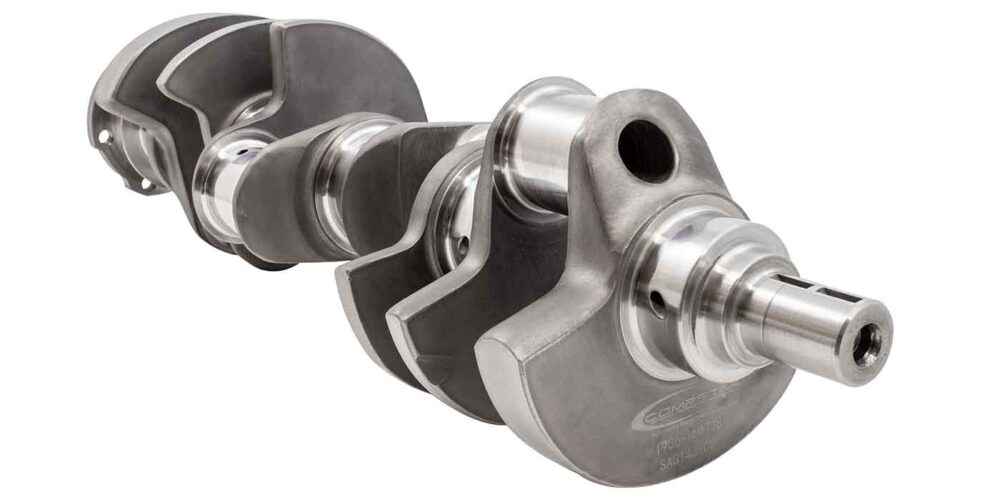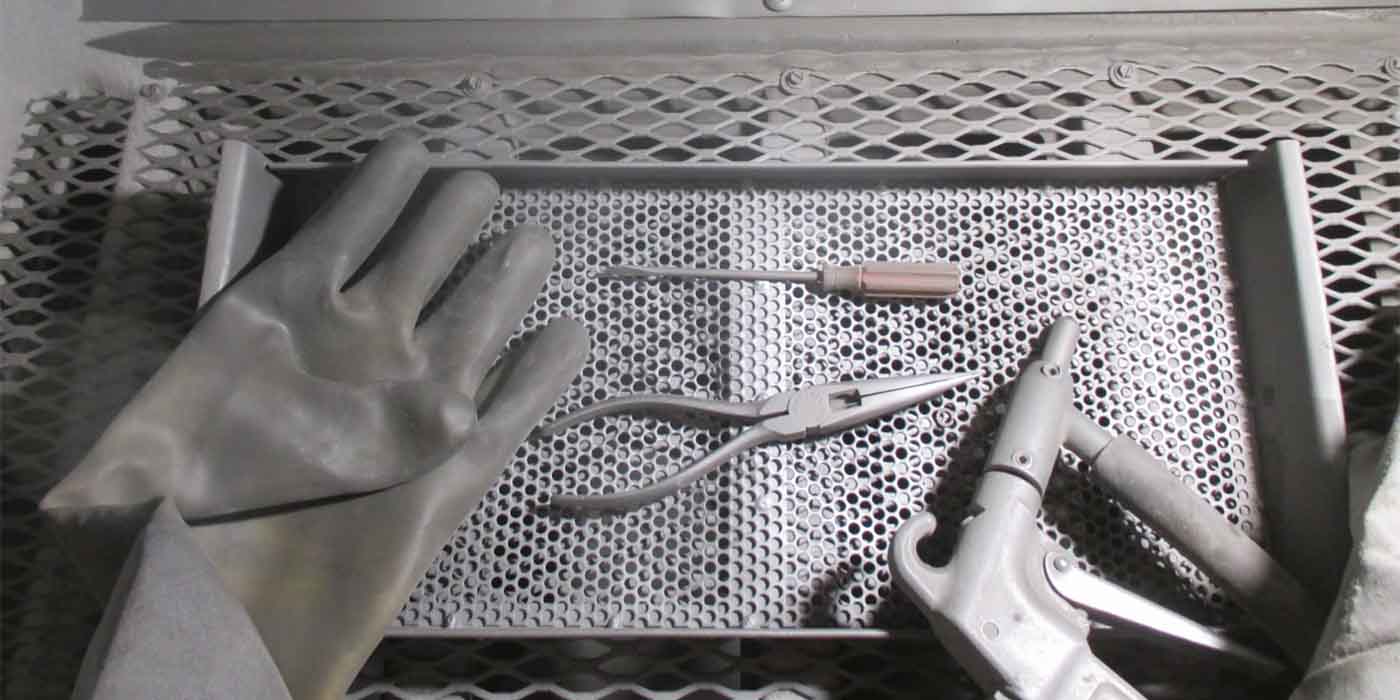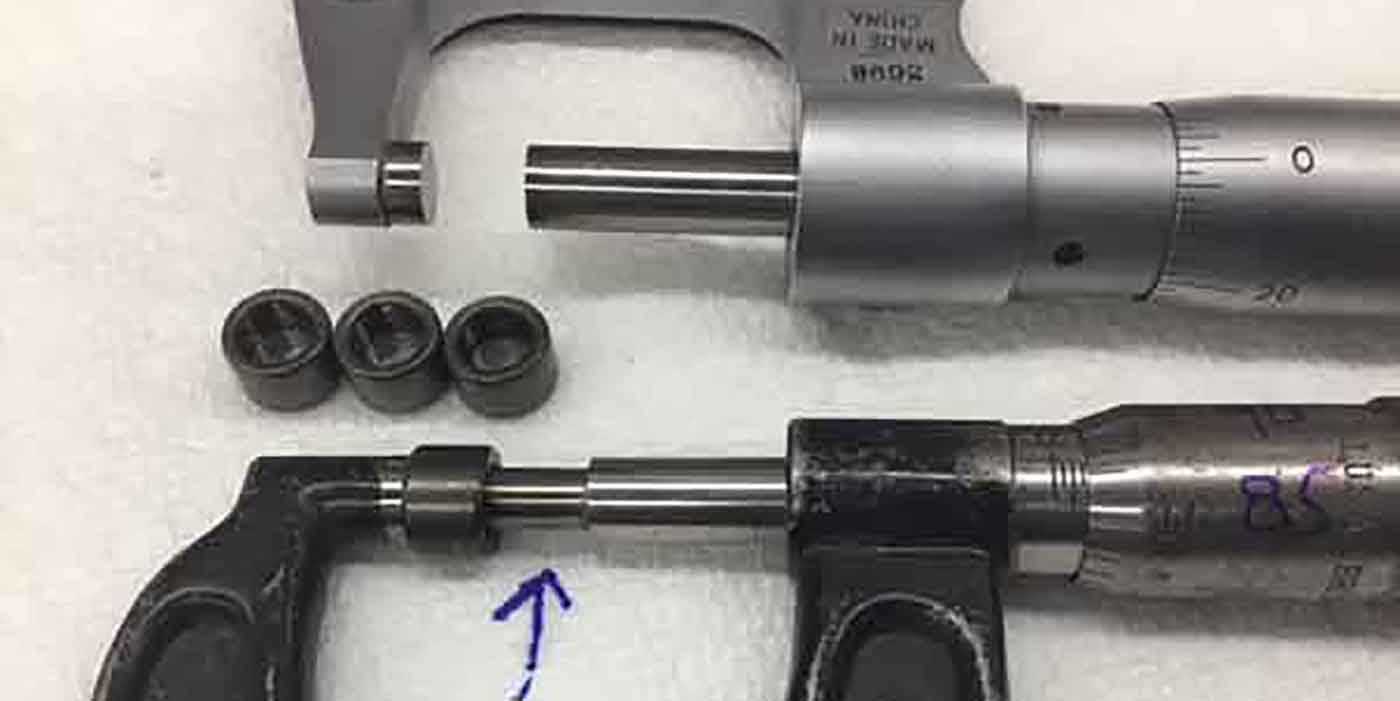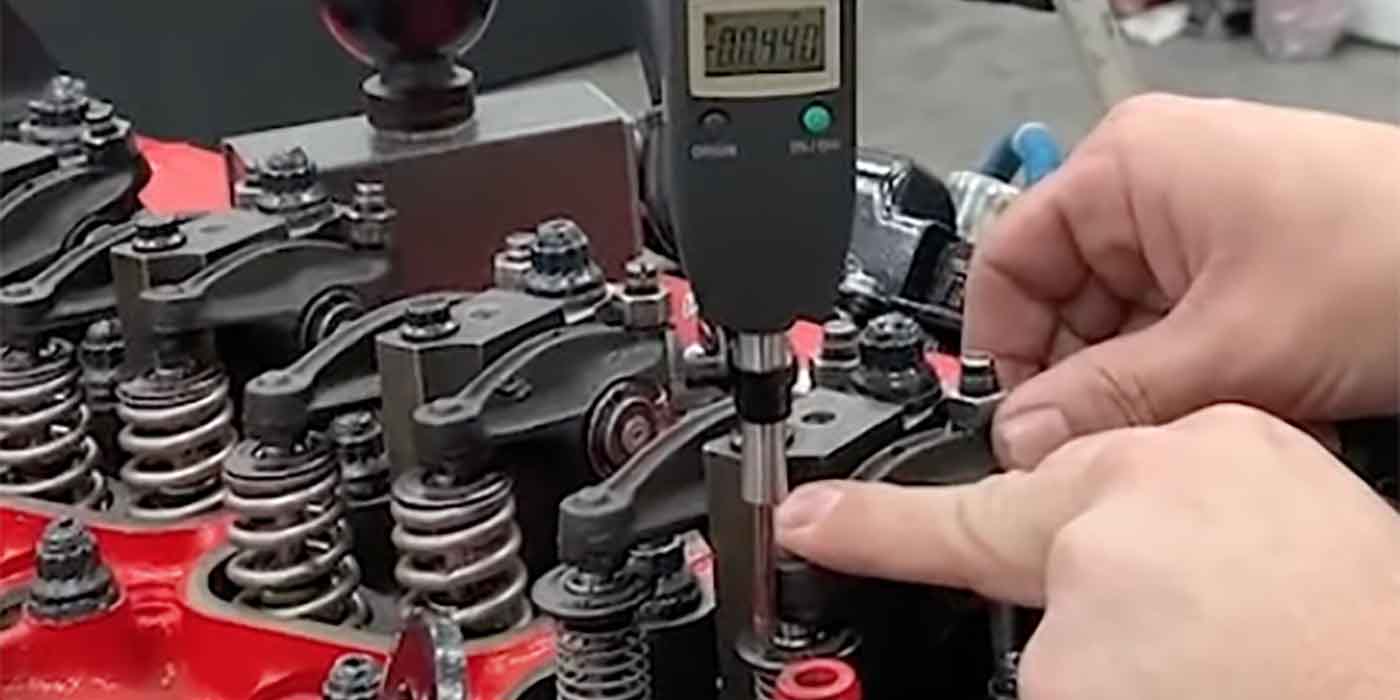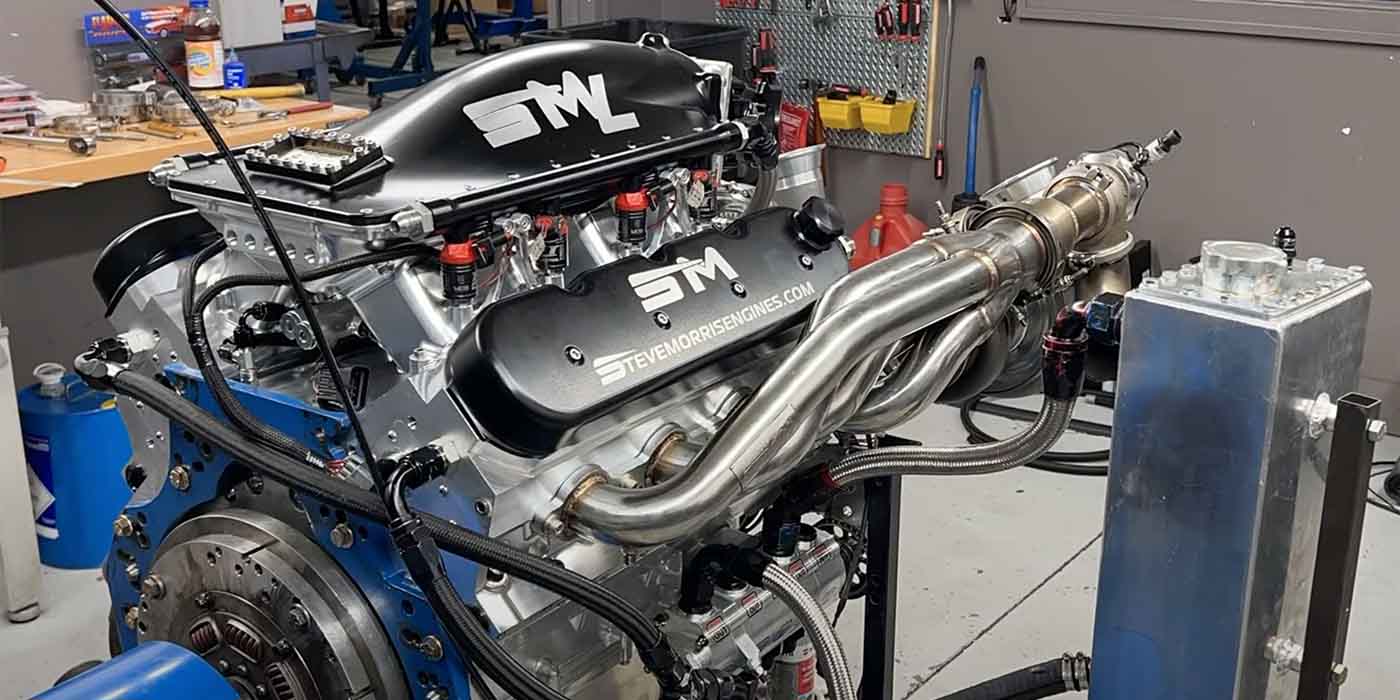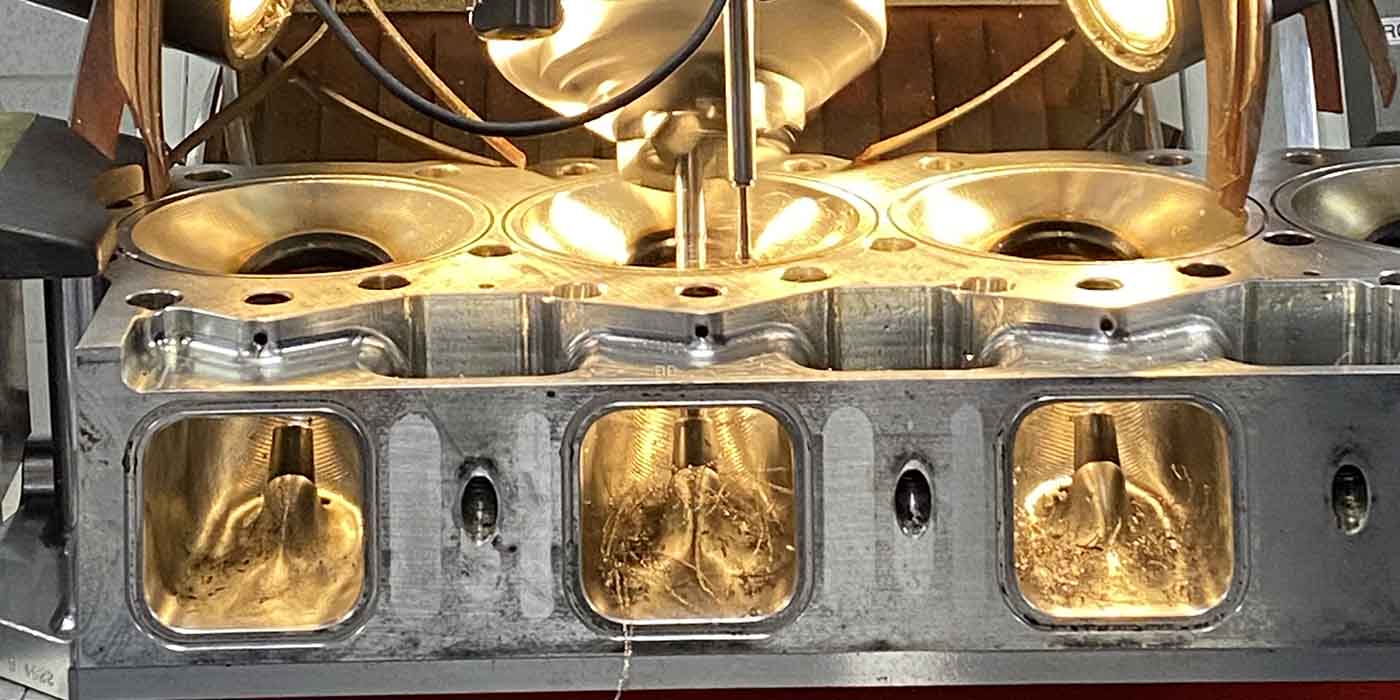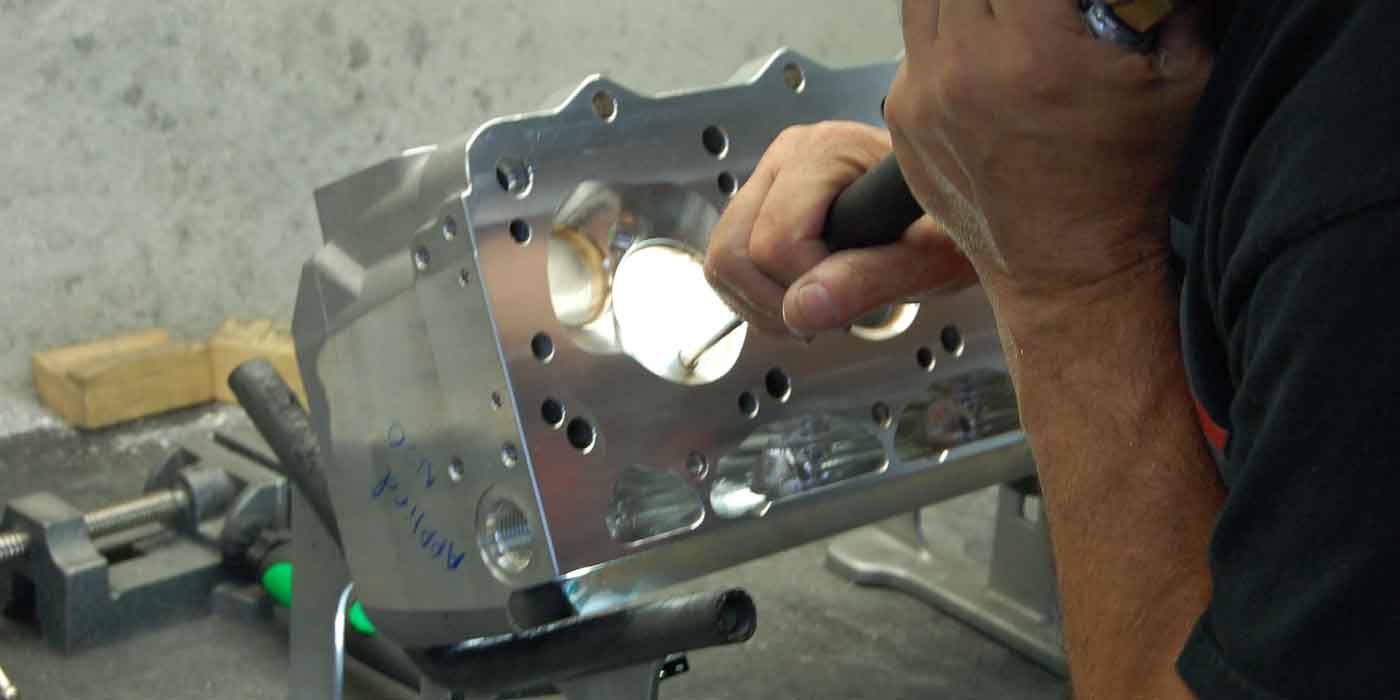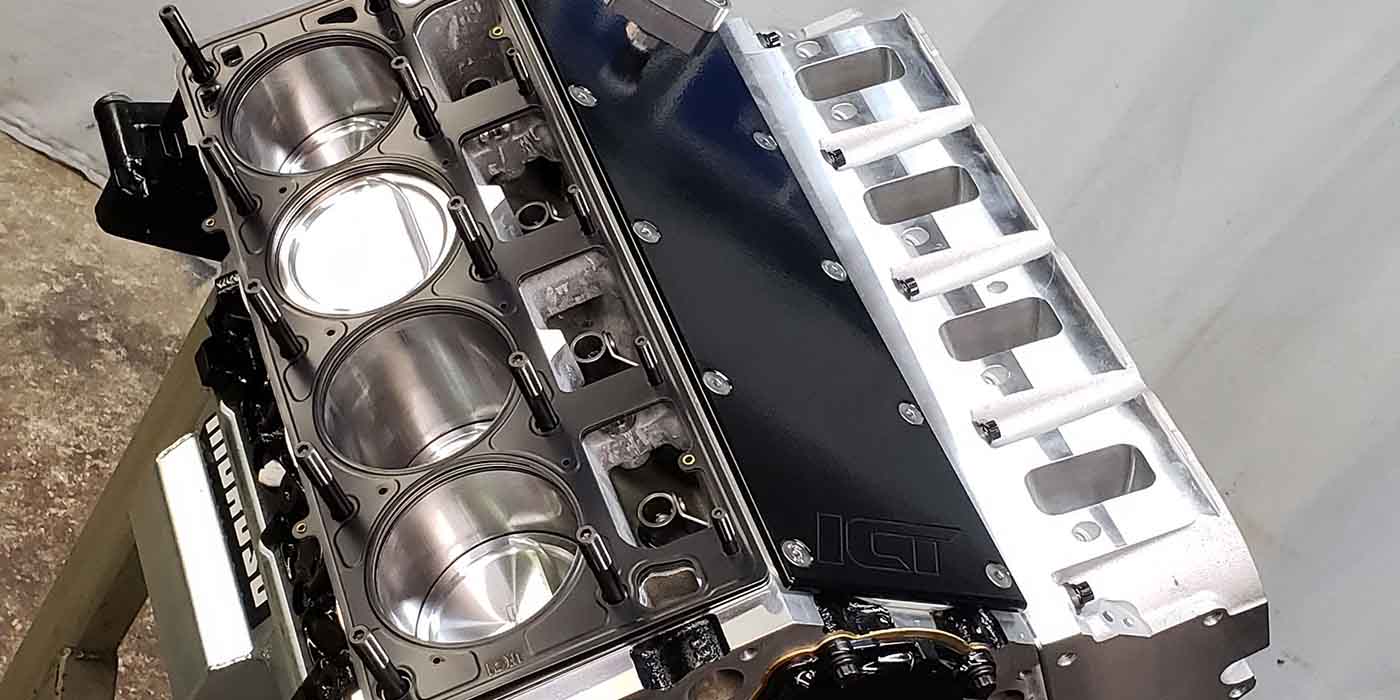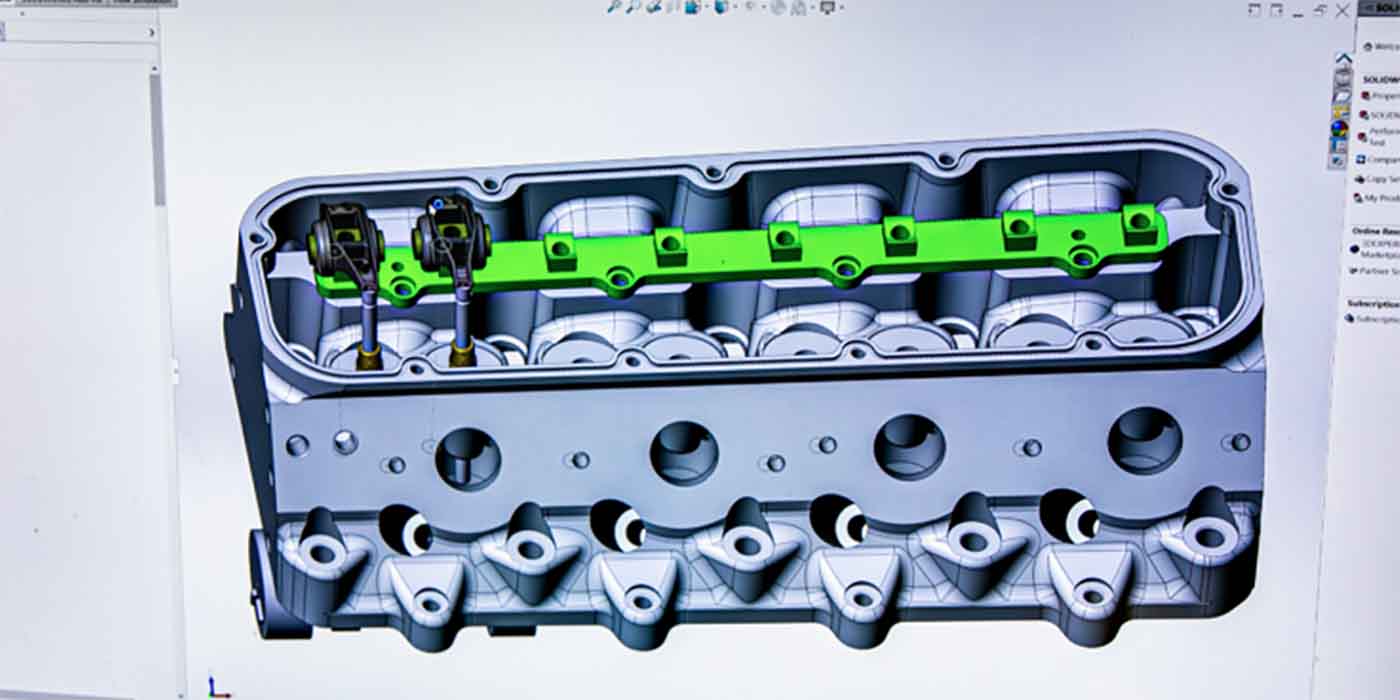Express Engines Inc. has saltwater on the brain
When most engine builders think of the salt, their minds take them to the Bonneville Salt Flats and land speed records. However, if you’re Bruce Baker, owner of Express Engines Inc. in DeLand, FL, you’re thinking of saltwater, water damage and offshore racing.
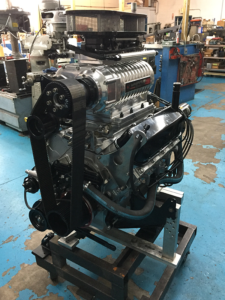
In fact, Baker works with Lucas Oil and Nigel Hook on his boat for the Super Boat International (SBI) circuit, and recently set a Guinness World Record for the fastest trip from Key West Harbor in Key West, FL to Havana Harbor in Havana, Cuba with a time of 1:18:03. Averaging around 80 mph on the way to Havana was enough to snag the record.
“The trip one way was about 103 miles from where we started,” Baker says. “It was a complete round trip with assistance, which means we went down there and stopped, got out of the boat, then went back. On the way back they broke a drive shaft. They kept it on plane and made it back on one engine, but it took three or four hours.”
In addition to building engines for the SBI circuit, Express Engines has also been involved in Class 1 Offshore Racing and has clients all over the world because of it.
Baker hasn’t always been in the Florida area, however. He was born and raised in Muskegon, MI and got his start in the engine industry working for his uncle Ray Baker from 1976–1983 at Baker Engineering, a Michigan-based precision machining company. He then moved to Chicago to work for a company called Prototype until 1985 when he decided to head south to DeLand and open his own engine machine shop.
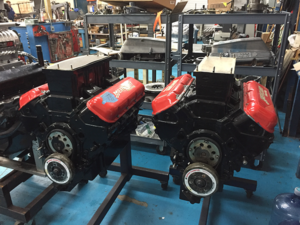
The shop’s current 3,000 sq.-ft. building is Baker’s second location, which Express Engines moved into in 1996. The building also includes a dyno room and a storage area a few doors down where assembled engines are kept.
While Express Engines’ primary market these days is marine engine work, the shop will work on just about anything that comes in the door, whether it’s V8, V6, automotive or motorcycle.
“Over the years, Express Engines has had a few name changes, starting as R&B Engineering, then Midnight Express when the shop did stock car engines in the late-’90s, and then Express Engines when we started doing boat engines,” Baker says. “I did some racing myself – stock car racing and street stock, even some late-model stuff. I also did some powerboat racing. I did stock car stuff from ’85 to ’97 and the boat stuff from ’97 to today. We still do some stock car engines today, it just isn’t our heavy-hitter anymore.”
“Our shop stays pretty busy,” Baker says. “We are comfortable and we don’t do a whole lot of advertising. Everything is through word of mouth.”
Express Engines has three full-time employees and is a complete machine shop capable of doing all work in-house with the exception of crank grinding. Express has a Sunnen CK10, a Sunnen line hone and rod hone, a Storm Vulcan surfacer, a Kwik Way surfacer, a Kwik Way boring bar, a Rottler seat and guide machine, a Hines balancer, and a SuperFlow dyno and flow bench.
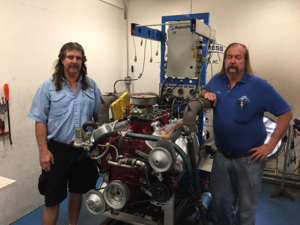
The shop can also perform lathe and mill work, , shot blasting, thermal cleaning, jet cleaning, glass beading, engine assembly and engine installations. This set up helps Express Engines make good on its ability to work on a lot of different engines, especially the marine ones.
“The marine market has been very good,” Baker says. “I mean it’s like anything else right now, it’s hard to really make a good profit on parts with big retailers like Jegs and Summit competing with us.”
While the parts side of the market is tough, the machining side of things has been strong for Express. According to Baker and his business partner John Kaeserman, the marine market is better than a lot of the automotive racing circuits.
“Most of the guys who have a $500,000 boat can afford it,” Kaeserman says. “Most of the guys who have a racecar, can’t afford it. It’s that simple. I hate to say it, but I feel short track racing is a dying deal. We made a good living at it for many years, but there’s just not enough fish in the pond for this area to keep it going. In other areas of the country it’s a totally different ball game for short track. But here in Florida, you can boat year round. If it’s raining today, just wait an hour or two or you’ll go tomorrow.”
Express does work on engines from 350 cid to 700 cid and can deliver horsepower ranges from 350 hp – 1,500 hp.
“We do naturally aspirated engines and a lot of supercharged stuff,” Baker says. “Most of it runs on pump gas either 90 or 93 octane. When engines come in, most of the work is valve train related or it has water damage. That’s usually what a marine engine will run into if a header breaks or a tailpipe cracks or valves start sticking and the engine starts pulling water back in that way.”
In fact, according to Baker and Kaeserman, most marine engines don’t wear out, but rather get abused or have water damage from lack of maintenance. As a result, the shop does a lot of aluminum head work.
“The headers start leaking and then it starts getting water in the engine and the damage starts,” Baker says. “If owners don’t keep up with their maintenance or check things, it eventually catches up with them. Then they come see us.”
When marine customers come in the door, Baker and Kaeserman say their primary aim is reliability over power.
“We want customers to have no trouble,” Kaeserman says. “We want them boating week after week. You can’t win if you’re not there, and you can’t win on the first lap either.”
While reliability is the top concern for Express, their customers often lean more toward performance.
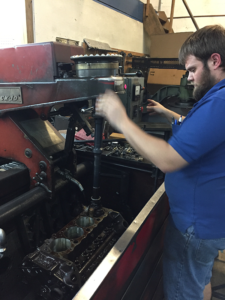
“Of course, if guys have 500 hp they want 800 hp,” Baker says. “If they have 800 hp they want 1,000 hp. If they have 1,000 hp they want 1,200 hp. They always want to go faster too. If they’re going 80 mph, they want to go 90 mph. If they go 90 mph, they want to go 100 mph. If they go 120 mph, they want to go 150 mph.”
Obviously, both Baker and Kaeserman are happy to oblige their customers’ requests for more power, but the two won’t let customer expectations cloud the reality of the situation.
“We tell them up front that what you’re trying to accomplish isn’t going to happen,” Baker says. “For instance, we had a guy bring his engine in and we ran it on the dyno. He wanted to get 650 hp out of it. We told him we could rebuild it and get 600 hp. Well, it ended up doing 591 hp, so of course, he was a little bummed, but the customer ended up spending the money to try to get it from 591 hp to 625 hp just to try to get faster. I couldn’t assure him its going to be 625 hp or 610 hp or 605 hp or still 591 hp, because the motor didn’t respond the last time. But we will buy some other parts and it should respond and give him 610 hp or 620 hp. But in general, we just tell them up front what they should expect.”
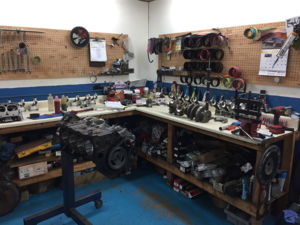 Baker adds that with boats there are far more factors than just the engine to consider. If you don’t have it completely dialed in you could put on 200 hp more and not go any faster.
Baker adds that with boats there are far more factors than just the engine to consider. If you don’t have it completely dialed in you could put on 200 hp more and not go any faster.
“The bottom surface of the boat has to be right, the propeller, efficiency and drive height all play a factor too, and customers just don’t understand,” he says. “They just think I can get 150 more hp and go 5 mph faster. It doesn’t quite work that way.”
Express Engines has a liberal yet firm policy when it comes to their customers bringing in parts for rebuilds.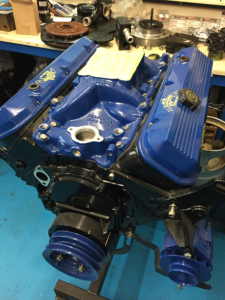
“If customers bring in parts for their build, we will use them, but only if they are of quality that we would use ourselves,” Kaeserman says. “If they come in with dime store parts, then no. They’ve got to buy something else.”
The shop’s whole mentality is to keep customers out on the open water. And for the last 30-plus years, Express Engines has been doing just that.

